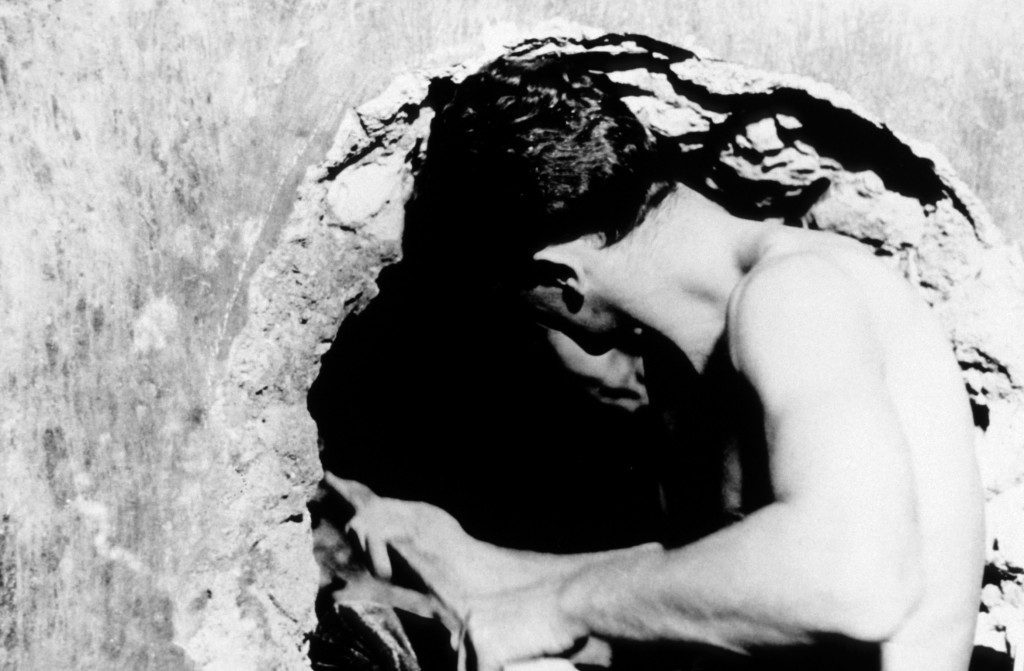CERCA
29 maggio 2017, 18.30 / Cinema De Seta
carte postale à Serge Daney
LE TROU
Jacques Becker
Francia-Italia 1960 / 132' / v.o. sott. it.

Parigi, carcere de La Santé. Gaspard Claude attende di sapere quale sarà il giudizio della Corte per il tentato omicidio della moglie. Durante l’attesa viene trasferito momentaneamente in un’altra cella dove verrà a contatto con un gruppo di detenuti che progettano da tempo un’evasione. Dopo qualche titubanza iniziale, i quattro decidono di coinvolgere il nuovo arrivato all’interno del loro piano di fuga. Lo scavo del buco e della galleria che condurrà i cinque all’agognata libertà metterà a dura prova l’ingegno e i rapporti di fiducia tra i prigionieri. Le trou è uno dei film più significativi della storia del cinema francese e mondiale, considerato da Jean-Pierre Melville come il miglior film francese di tutti i tempi, è costruito con rara maestria su un ritmo pieno di tensioni rese attraverso i rumori, gli sguardi, la suspense. Un’opera di rara bellezza che racconta dentro una messa in scena semplice temi come la dignità, la fiducia, il coraggio. Un film, come dice Serge Daney, capace di “filmare l’idea stessa di libertà”.
Paris, prison La Santé. Gaspard Claude is waiting to know what the court's judgment will be for the attempted murder of his wife. While waiting, he is temporarily transferred to another cell where he will get in contact with a group of inmates who have been planning to escape the prison for some time now. After initial hesitation, the four inmates decide to involve the newcomer in their escape plan. The excavation of the hole and of the gallery that will lead them to the long-awaited freedom will put a strain on their ingenuity and on the relationships of trust between the prisoners. Le trou is one of the most significant films of the French and international history of cinema, also considered by Jean-Pierre Melville as the best French film of all time, it is built with rare mastery at a rhythm full of tensions made through noises, looks and suspense. A work of rare beauty that tells in a simple mise-en-scene themes such as dignity, confidence, and courage. A movie, as Serge Daney says, capable of "filming the very idea of freedom."
Jacques Becker
Comincia la sua carriera registica nel 1931 come assistente di Jean Renoir, ricoprendo anche piccoli ruoli di attore all’interno di diversi film. Dopo una serie di lavori e di mediometraggi, il suo debutto al lungometraggio avviene durante l’occupazione nazista della Francia con Dernier atout (1942). Dopo la guerra e un anno di prigionia nelle carceri naziste, nel 1947 gira la commedia Antoine et Antoinette con la quale vince il Grand Prix du Festival International du Film come miglior film psicologico o d'amore al 2º Festival di Cannes. La sua carriera è stata caratterizzata da opere che testimoniano la sua versatilità nel girare film con toni e diversi tra di loro. Tra i suoi lavori più apprezzati e conosciuti Casque d’or (1952), Touchez pas au grisbi (1954) e Le trou (1960) il suo ultimo film considerato dalla critica come il suo capolavoro.
He began his career in 1931 as Jean Renoir’s assistant, which also included playing small roles for several films. After a series of works and short films, his feature film debut takes place during the Nazi occupation of France with Dernier atout (1942). After the war and one year of imprisonment in the Nazi prisons, in 1947 he shoots the comedy movie Antoine et Antoinette with which he won the Grand Prix du Festival International du Film as best psychological or love film at the 2nd Cannes Film Festival. His career has been characterized by works that testify his versatility in filming in very different tones. Among his most popular and well-known works there are Casque d'or (1952), Touchez pas au grisbi (1954) and Le trou (1960), his last film considered by critics as his masterpiece.
LE TROU
Jacques Becker
Francia-Italia 1960 / 132' / v.o. sott. it.
screenplay Jacques Becker, José Giovanni, Jean Aurel
cinematography Ghislain Cloquet
editing Marguerite Renoir, Geneviève Vaury
music Philippe Arthuys
cast Michel Constantin, Jean Keraudy, Philippe Leroy, Raymond Meunier, Marc Michel, Jean-Paul Coquelin, André Bervil, Eddy Rasimi
producer Filmsonor, Play Art, Titanus
contact http://www.tamasadiffusion.com
contact tamasa-distribution@orange.fr



